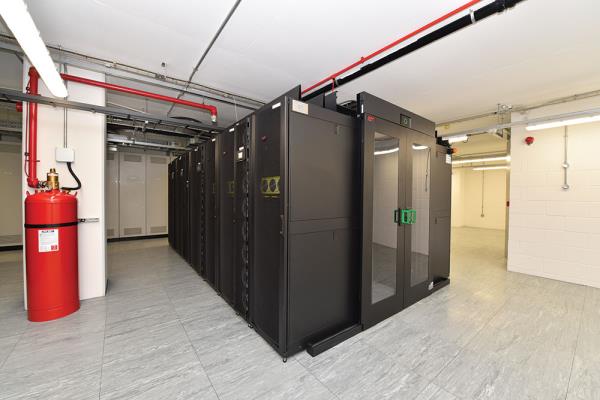03 January 2018

With a pedigree dating back to the early 19th century, Sheffield Hallam University has more than 31,000 students and more than 4,500 staff. It is situated on two campuses comprising 12 major buildings in the city centre, including the Sheffield Institute of Education at Charles Street which was re-developed at a cost of £30m in 2014-15.
The university’s IT department operates two data centres that run as an active-active pair in which each location provides primary IT services as well as offering failover support to the other.
As one of the existing data centres was located in a building where the lease was due to expire, the IT department took the opportunity to move the facility into the Charles Street development and upgrade its capabilities to improve efficiency and availability.
West Yorkshire-based data centre specialist Advanced Power Technology (APT) won the tender to provide and install the cooling and power infrastructure equipment and the DCIM software necessary to manage it efficiently.
Thanks to virtualisation, the number of physical servers the university needed to maintain services had dropped from 60 in the older data centre to 15 in the new Charles Street facility. What would have run in three racks before can now run on one chassis.
APT’s installation is based on Schneider Electric’s InfraStruxure integrated data centre physical infrastructure solution for power, cooling and racking. The newCharles Street data centre has IT equipment racks installed within two InfraStruxure hot aisle containment systems (HACS). Two 300kW free-cooling units supply chilled water to the HACS and within the equipment racks, while APC InRow cooling units aim to maintain optimum operating temperatures. The HACS segregate the cool air supply from the hot exhaust air, preventing both streams from mixing and enabling more precise control of the cooling according to the IT load’s requirement.
At the same time, Schneider Electric says locating the InRow cooling units next to the servers and storage equipment also reduces the cooling energy requirement by eliminating the need to move large volumes of air in a suspended floor space.
The vendor’s StruxureWare DCIM software has also been adopted, and it’s claimed this is crucial to maintaining efficient operation. The new management capabilities presented by the software gives the IT team the flexibility to monitor the IT infrastructure for maximum efficiency, and to manage how services are made available to students and staff.
The university says it can also now tender for research contracts that it was previously unable to bid for.








